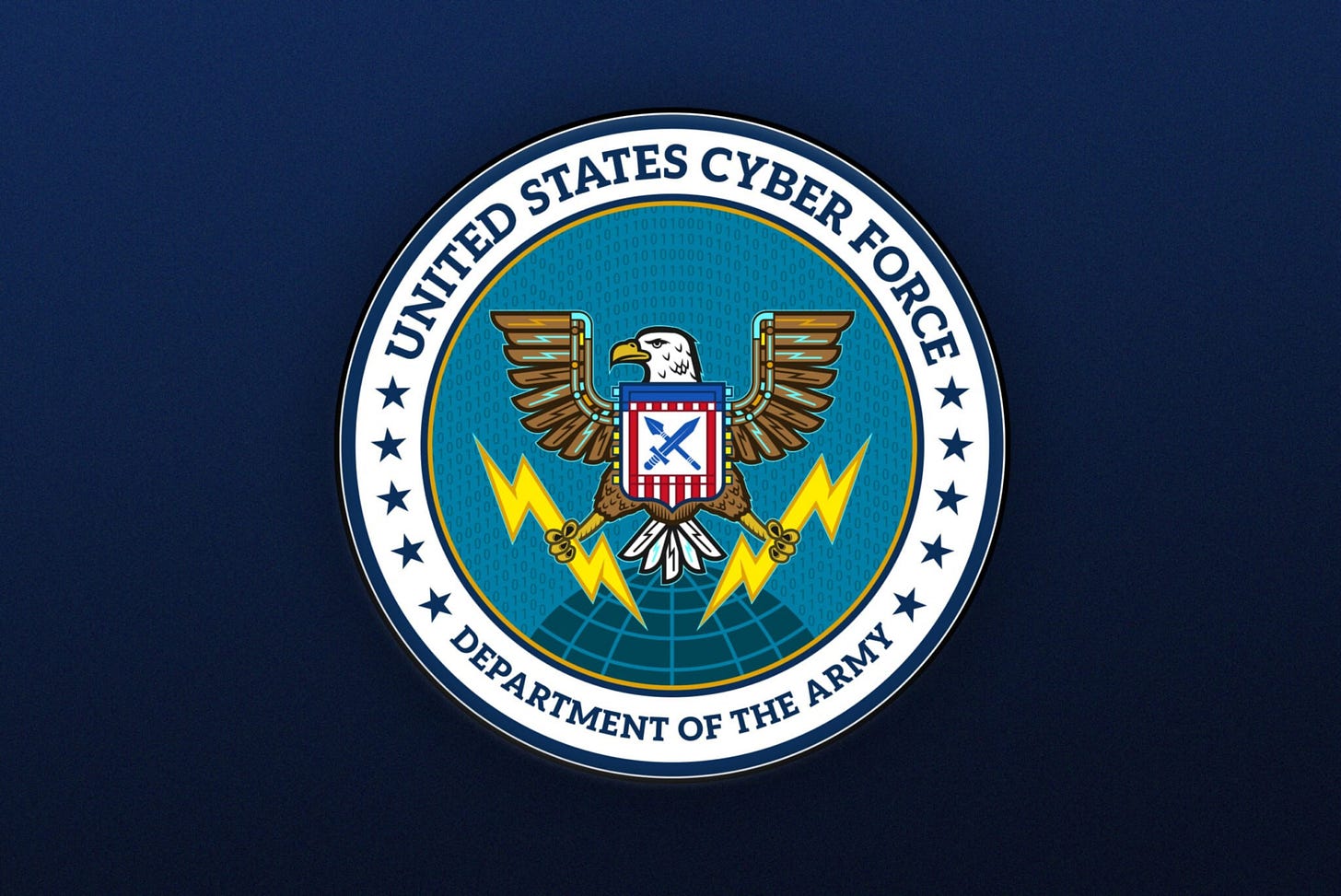Deep Dive The Proposed U.S. Cyber Force Service
Do we really need another armed service?
The proposal to establish a U.S. Cyber Force as an independent military service has generated significant debate among policymakers, military officials, and cybersecurity experts. This discussion revolves around the need to address the growing cyber threats and the current organizational challenges within the U.S. military's cyber operations. Here is a detailed analysis of the proposed Cyber Force service, including its potential benefits, drawbacks, and the current state of U.S. cyber operations.
Background and Current Structure
U.S. Cyber Command (USCYBERCOM)
USCYBERCOM is a unified combatant command of the U.S. Department of Defense (DoD) responsible for cyberspace operations. It was established to centralize command of cyberspace operations, strengthen DoD cyberspace capabilities, and integrate and bolster DoD's cyber expertise. USCYBERCOM oversees several key components, including the Cyber National Mission Force (CNMF), Cyber Combat Mission Force, and Cyber Protection Force, which collectively conduct offensive, defensive, and support operations in cyberspace.
Cyber Mission Force (CMF)
The CMF is USCYBERCOM's action arm, consisting of 133 teams that execute the command's mission to direct, synchronize, and coordinate cyberspace operations in defense of U.S. national interests. These teams are organized into National Mission Teams, Combat Mission Teams, Cyber Protection Teams, and National Support Teams, each with specific roles in cyber defense and offense.
Proposal for a U.S. Cyber Force
Rationale for a Separate Cyber Force
Proponents argue that the current structure, where each military service provides personnel for cyber operations, leads to inconsistencies and inefficiencies. They believe that a dedicated Cyber Force would provide a more focused and effective approach to cyber operations by centralizing recruitment, training, and command under one service.
Key Arguments for a Cyber Force:
Focused Training and Recruitment: A dedicated Cyber Force would have its own training and education programs, allowing for the recruitment and retention of the best cyber talent.
Operational Efficiency: Centralizing cyber operations under one command could reduce bureaucratic inefficiencies and improve the speed and effectiveness of responses to cyber threats.
Enhanced Capabilities: A Cyber Force would be better equipped to develop and maintain advanced cyber capabilities, ensuring the U.S. remains competitive in the cyber domain.
Potential Drawbacks
Critics of the proposal highlight several concerns, including the potential for increased costs and bureaucratic duplication. They argue that the existing structure, with USCYBERCOM overseeing cyber operations, can be improved without creating a new service.
Key Arguments Against a Cyber Force:
Cost: Establishing a new military service would be expensive, requiring significant investment in infrastructure, personnel, and training programs.
Duplication of Efforts: A new Cyber Force might duplicate existing capabilities within the military services, leading to inefficiencies and potential conflicts over jurisdiction.
Bureaucratic Challenges: Creating a new service could introduce additional layers of bureaucracy, potentially slowing down decision-making and operational responses.
Current Developments and Future Prospects
Legislative and Policy Actions
The U.S. Senate has taken steps towards exploring the feasibility of a Cyber Force. The 2024 National Defense Authorization Act includes provisions for the Department of Defense to study the creation of a cyber-specific military service. This study, conducted by the National Academy of Public Administration, is expected to provide insights into the potential benefits and challenges of establishing a Cyber Force.
Budget and Resource Allocation
USCYBERCOM has recently gained enhanced budgetary control, allowing it to directly allocate resources for cyber operations. This includes a significant increase in its budget for fiscal year 2024, aimed at improving cyber capabilities and readiness. The budget includes funding for additional Cyber Mission Force teams and investments in next-generation encryption and zero trust architecture.
Expert Opinions and Recommendations
Several experts and retired military officials have voiced support for the creation of a Cyber Force, citing the need for a more focused and specialized approach to cyber operations. However, there is also caution from some quarters about the potential challenges and the need for careful consideration before making such a significant organizational change.
Conclusion
The proposal to establish a U.S. Cyber Force as an independent military service is a complex and multifaceted issue. While there are compelling arguments for creating a dedicated service to address the growing cyber threats and improve operational efficiency, there are also significant concerns about the costs, potential duplication of efforts, and bureaucratic challenges. The ongoing studies and legislative actions will provide further insights into the feasibility and potential impact of this proposal, shaping the future of U.S. cyber operations.
Infrasec Alliance is committed to providing in-depth analysis and insights into the latest developments in cybersecurity. Stay tuned for more updates and expert opinions on this evolving topic.


